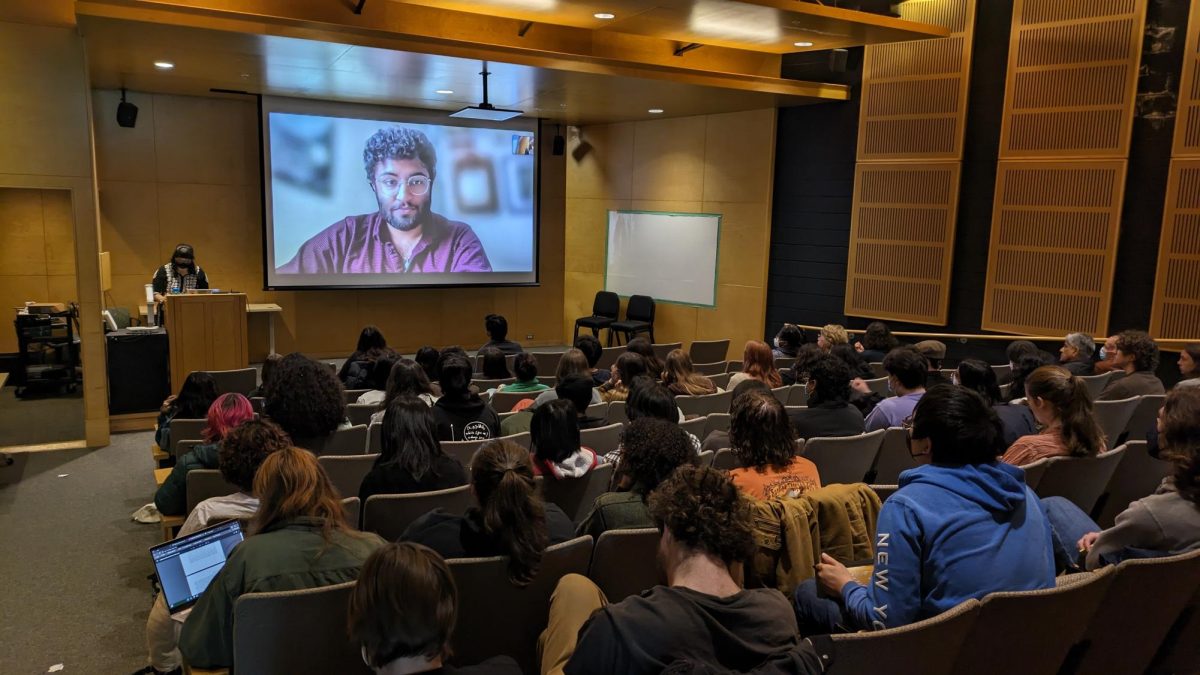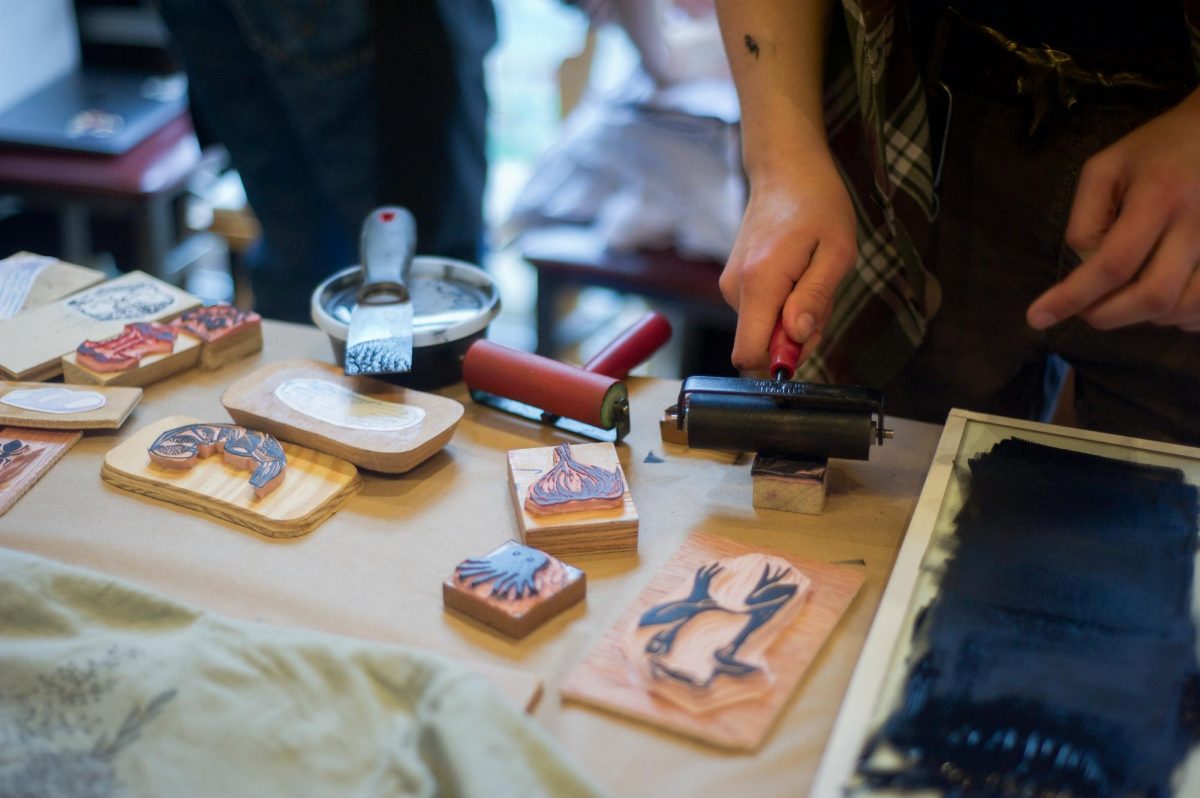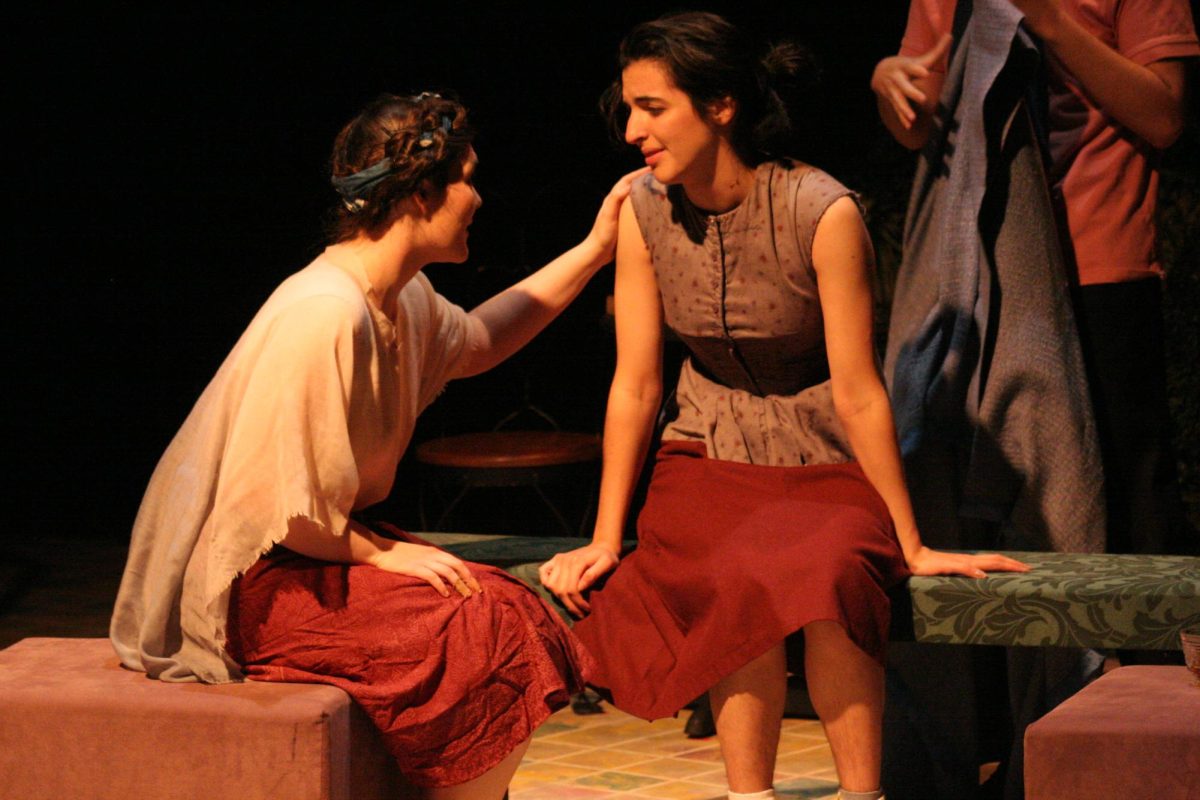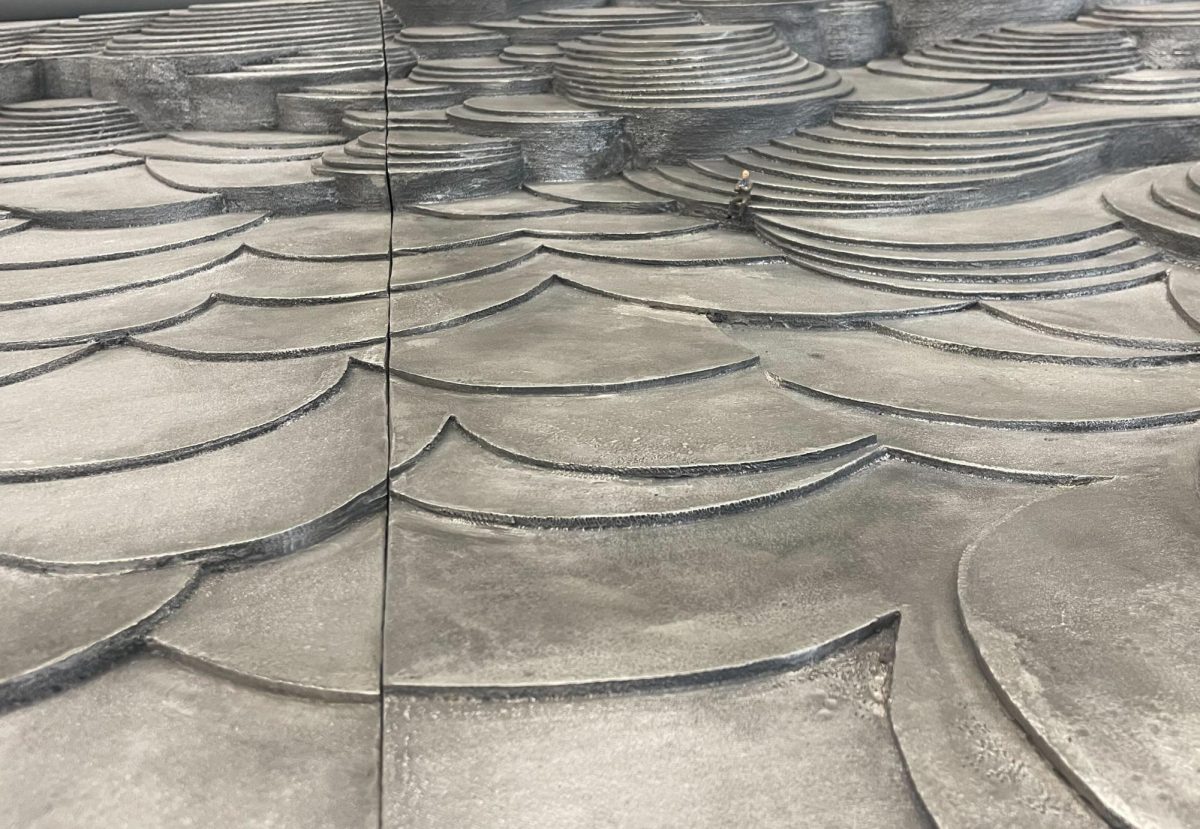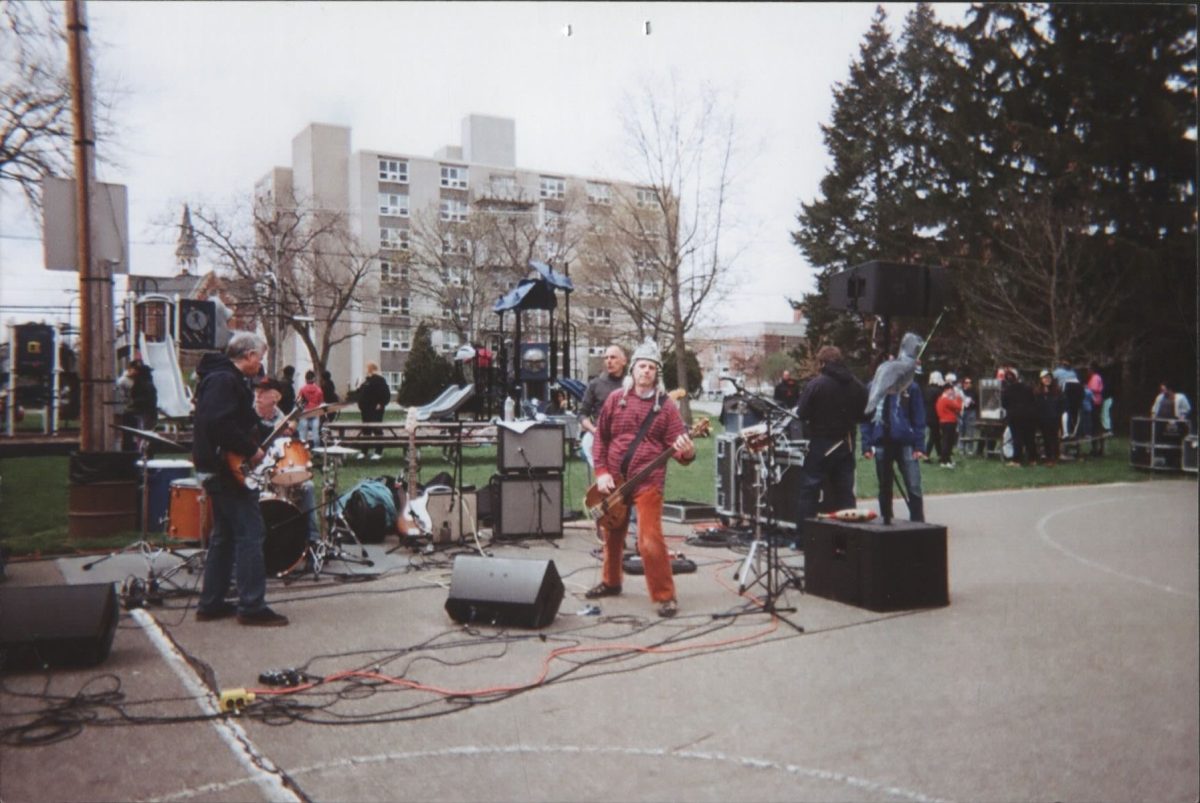In Their Own Words: Experiences of Obies in Japan
April 15, 2011
When the magnitude nine earthquake struck Japan on March 11, the ensuing tsunami and disasters brought international attention to the country. As the death toll continued to rise, Dean of Study Away Ellen Sayles had to decide whether or not Oberlin students in Japan would have to cut short their time abroad.
With students on three different programs and in three different locations, Sayles worked on contacting the students and their families to ascertain their safety immediately after the tsunami, and then set to work deciding if the students could stay in Japan.
The Office of Study Away’s policy on bringing students back from overseas is generally only applicable for countries in which the U.S. Department of State has issued a Travel Warning, which it did for Japan on March 30.
“If the student is in the country when the Travel Warning is issued, we review each case on an individual basis to determine whether the student should remain or not,” said Sayles in an e-mail. “If the student is on a program run through another organization, we are in touch with that organization or school to get their assessment. We also try to utilize any contacts we have in the country itself to see what things are really like on the ground.”
Once all information is gathered, “the final judgment is made in consultation with various offices on campus such as the Dean of Students, Dean of Studies and Office of Legal Council.”
While two students on the program in Tokyo were asked to leave by their program, “The other students were far enough away from the epicenter of the quake and the nuclear reactors that the programs, and Oberlin, felt that it was safe for them to stay in the country,” said Sayles.
“Of course,” Sayles added, “students may always elect to leave a situation in which they were not comfortable continuing.”
Of the seven students who were in Japan, either for an entire year or the spring semester, the Review was able to get in touch with three. College senior Sarah Fries is studying at the Kansai Gaidai in Osaka, College junior Simon Ehrlich is at the Associated Kyoto Program at Doshida University and College junior Caroline Chen was at Waseda University in Tokyo.
In their own words, these students reflect on their experiences during this turbulent time:
Sarah Fries: I was in the computer lab writing an update email to my parents when it happened. I felt a dizzy swaying sensation; it was similar to how you start to lose balance before you pass out. I thought that I was going to pass out and was about to get someone’s attention when it stopped. I did not feel sick, so I figured it may have been an earthquake.
Simon Ehrlich: I’m based in Kyoto. That Friday I was out with friends and we were going to see The King’s Speech when we ran into two other people from our program. They told us about the earthquake and tsunami, which at that point had happened about an hour ago, and after hearing about it we saw various people with special editions of newspapers with photographs and huge headlines about the event.
Caroline Chen: I was in Osaka traveling with other exchange students for spring break [when the quake happened]. Osaka is actually pretty far away from the quake’s epicenter — it’s located in the southwestern Kansai region of Japan. We were in a bakery when the quake reached Osaka; it came as a very slow, rolling wave that I initially mistook for vertigo. The entire building slid slowly to the right, and then back to the left; this went on for a couple minutes. We checked for information on the quake on our phones and couldn’t believe it when we learned that the epicenter was all the way in the Tohoku region — on the opposite side of the country — and that it was a magnitude [of over 8]. The gravity of the situation didn’t really sink in until we got back to our hostel, where we found the owners and other guests huddled around the TV, watching footage of entire towns swept away by the tsunami. It was so hard to believe that such devastation was occurring at that very moment, while we were still sitting in sunny, untouched Osaka.
Sarah: It felt very surreal afterward. I am in Osaka, which is very far south from the earthquake epicenter and the major damage. There were no major changes in daily life; the trains are running on time, the supermarkets are well-stocked, and there are no rolling blackouts. I did sense a shift in the mentality of the Japanese people around me, as if they were in shock or are still trying to absorb the recent events. They are very calm. VERY calm. It has been a comfort to be around them. The biggest stress for me is emotional. The size of the damage and the people affected is difficult to absorb, something I have yet to totally come to grips with.
Simon: As for reactions, I didn’t see that much from Japanese people on trains or in public, but I’d say that’s the norm in Japan.
Caroline: When I returned to Tokyo, many of the train lines were still out of service and the rolling blackouts had just begun. No one visibly showed panic or fear, but there was this sense of grim resignation hanging over the city. Most people seemed to be thinking, “It happened; that’s that. The best we can do now is to work together and move past it.” As you may have seen in the news, the Japanese have rallied together in the most admirable ways to help. I often saw crowds of students on the streets, collecting money for the Red Cross, and many people have volunteered to help in the Tohoku region. TEPCO has ended up canceling a lot of the scheduled power outages in Tokyo because people cut back on their electricity usage so much. Convenience stores shut off their lights during the day, popular nightlife areas turned off their giant outdoor TVs and many stores cut back their business hours to conserve power. People worked around these changes as best as they could; everyone wanted to go back to their normal daily lives as quickly as possible. My host family took everything in stride, trying to stay optimistic, though there were many times where I would find my host mom crying while watching the news.
Sarah: The biggest source of stress surprisingly came from foreigners. While at school, I am surrounded by students from various countries, and everyone was hearing different information from their countries, home institutions and families. At the initial quake on Friday, people were concerned, but no one was ready to leave since we are so far south. By Monday, I knew of only three people who decided to leave the country as a precaution. By Thursday, I would guess that a fourth of the international student body had already left or decided to leave. As time went by, more students were being forced by their home institutions to withdraw from the program.
Simon: In one sense, as an American I can’t really identify with the tragedy as much as a Japanese person would. This is not my country, so I’m definitely less emotional about it than a normal Japanese person would be. On the other hand, I do feel more involved in the event than most Americans would. Most media outlets outside of Japan got a lot of stuff wrong about what went down here. Media outlets outside Japan reported things without fact checking, and with the ongoing situation in Fukushima, at times they would blatantly lie about the scale of the disaster.
Caroline: I felt very much like a part of the people; I didn’t even consider the fact that I was still a foreigner. I had always felt somewhat detached from other natural disasters — the Haiti earthquake, the Southeast Asia tsunami, even Hurricane Katrina. But the Tohoku earthquake and tsunami affected me like nothing else had ever before. Living in Japan for six months made that much of a difference, and my connection with my host family and Japanese friends only amplified the seriousness of this disaster.
Sarah: I am thankful that Oberlin decided not to take me out of the country or out of the program. Yes, there was a lot of damage. But news stations hyper-sensualize the news and treat the entirety of Japan as Tokyo or the north. It is like saying that New York was flooded after Hurricane Katrina.
Caroline: I did have to leave [Japan] eventually. Most students in my program did and some have even been pulled out completely by their home schools. After receiving several warnings from the U.S. Embassy and pressure from my family, I decided to come back to the states for a few weeks. Technically I was still on spring break, and my university in Tokyo has pushed back the spring semester, so coming back hasn’t really affected my studies. This didn’t make leaving any easier, though. I had built up a deeper connection to my host family, friends and Japan than I thought, and I felt extremely conflicted about leaving — like I was a coward running away. It’s a big hotpot of emotions: reverse culture shock, bitterness about leaving Japan [and] guilt for being able to run away to another country while thousands of Japanese have lost their entire lives.
Sarah: There are still many places and aspects of Japan that I wish to experience. I am grateful for the calm assessment of the Oberlin staff and the communication from the Study Away office. It is now spring in Japan, and the cherry blossoms are in full bloom. Although the north continues to have minor earthquakes multiple times a week, I feel that the Japanese people are prepared and able to overcome this difficulty.





